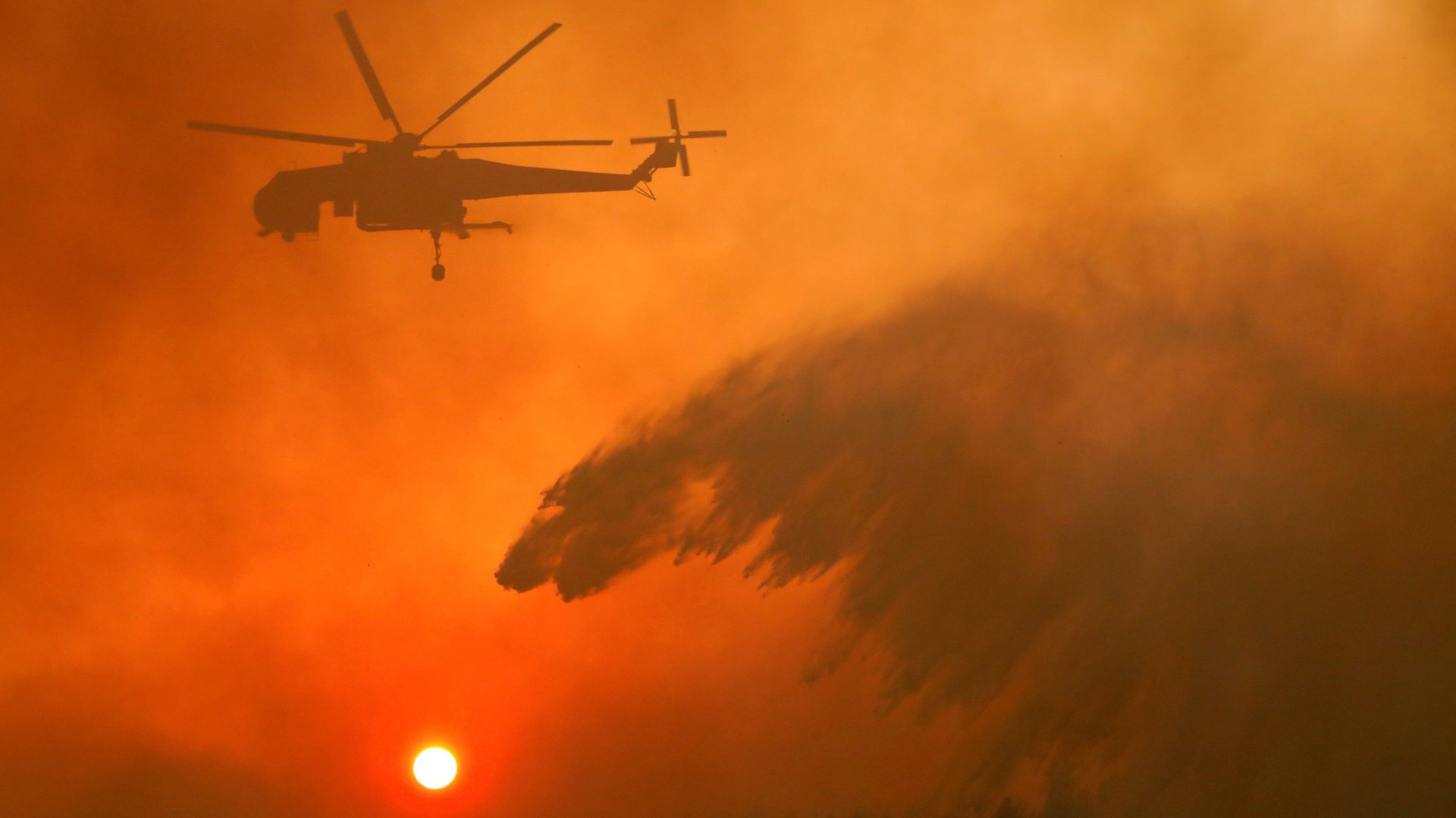What it was like living through the hottest month in Earth’s recorded history
July of 2019 is officially the hottest month in recorded history. Humanity’s experiment of pumping greenhouse gases in to the atmosphere is producing results that are frighteningly consistent with our predictions. The climate crisis is here.


July of 2019 is officially the hottest month in recorded history. Humanity’s experiment of pumping greenhouse gases in to the atmosphere is producing results that are frighteningly consistent with our predictions. The climate crisis is here.
One of scientists’ predictions has been for more frequent and intense heatwaves. While the global average temperature has risen by about 1°C, in small pockets people might experience daily temperatures as high as 20°C above average—spikes that can have devastating consequences. From human health, transportation systems, and environmental stability to animal safety, civic peace, and water and energy availability, every element of modern life can be affected by such extreme temperatures.
Just take a look at some of the examples of what happened last month.
Belgium
- Trains were disrupted.
- Ozone pollution peaked.
- A zoo fed tigers iced chickens and bears iced watermelon to keep them safe.
- The country’s all-time high was recorded in Kleine-Brogel at 39.9°C (104°F), higher than the previous record of 38.8°C set in June 1947.
China
- More than 500,000 suffered from widespread droughts.
- Cases of heatstroke spiked in Shanghai.
- Electricity consumption shot to new highs in many cities in Guangdong province.
- Record-setting highs were registered in a dozen cities, including Beijing and Chongqing.
France
- Paris was on red alert (link in French).
- Residents were asked to look out (link in French) for vulnerable elderly.
- A nuclear power plant suffered an outage.
- At least five people died because of the heatwave.
Germany
- The Rhine’s water levels dropped, causing disruption for river traffic.
- The Danube’s water levels fell, stranding ships.
- The country hit an all-time high of 40.5°C in Geilenkirchen.
Greenland
- The country’s ice sheets are melting at a rate projected by pessimistic climate models to happen in 2070.
India
- Chennai, a city of 9 million, ran out of water.
- The country’s monsoon rains were weaker than normal.
- Delhi extended school vacations.
Japan
- At least 11 people died because of the heatwave.
The Netherlands
- The country reached an all-time high of 39.2°C near Breda, exceeding the previous high of 38.6°C set in August 1944.
Norway
- Norway recorded an all-time high at 35.6°C, equaling a record set in 1970.
Portugal
- Wildfires were ablaze in central Portugal and the Algrave.
Russia
- The country declared an emergency (paywall) after it couldn’t bring huge swathes of wildfires in Siberia under control.
Spain
- Villages near Madrid were evacuated because of wildfires.
The UK
- Planes were canceled.
- Trains were delayed.
- People fought over access to an outdoor pool.
- The country’s all-time high was broken, reaching 38.7°C in Cambridge.
The US
- 128 million people were given excessive heat warnings.
- 70,000 homes and businesses in New York suffered a power outage.
- All-time high temperature records were set in six places.
- The heatwaves caused at least six deaths.
- Wildfires raged in Alaska.
All this happened with a global average temperature rise of about 1°C compared to the pre-industrial period. The Intergovernmental Panel on Climate Change estimates that, at current trajectory, the world will warm between 3°C and 4°C by 2100.